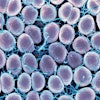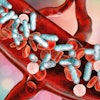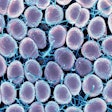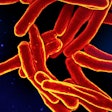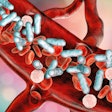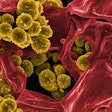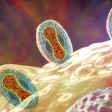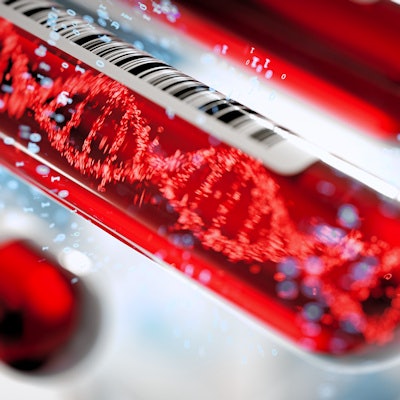
A blood test that tracks microbial DNA shows promise for identifying different types of cancer based on their microbiome profiles, according to a study published online March 11 in Nature. Researchers have formed a start-up company to pursue their work.
The findings point to important shifts in the field of cancer biology, said lead author and MD/PhD student Gregory Poore, of the University of California, San Diego (UCSD), in a statement. Poore is pursuing his graduate work in the laboratory of Rob Knight, PhD, at UCSD's Center for Microbiome Innovation.
 UCSD researchers were able to determine who had cancer and what type based on a readout of microbial DNA found in the blood. Image courtesy of MacDill Air Force Base.
UCSD researchers were able to determine who had cancer and what type based on a readout of microbial DNA found in the blood. Image courtesy of MacDill Air Force Base."Our results suggest that a new class of microbiome-based cancer diagnostic tools may provide substantial future value to patients," the study authors wrote in Nature.
Current practice for diagnosing cancer involves surgical biopsy and analysis of the sample -- an invasive, time-consuming, and costly process, Poore and colleagues noted. That's why liquid biopsy has such promise.
Poore's group sought to explore whether there were associations between cancer types and particular microbiota that could be identified via a blood test. To do so, the researchers conducted a study that included microbial data from 18,116 tumor samples taken from the Cancer Genome Atlas, a U.S. National Cancer Institute database.
From the data, the researchers isolated microbial patterns associated with specific cancer types, some of which were expected (for example, HPV and cervical and head and neck cancers) and some that were not.
Poore and colleagues used these microbiome profiles of cancer samples to train and test machine-learning models to link microbial patterns with specific cancers. The models proved able to identify cancer types via blood microbial data. In fact, when the researchers eliminated stage III and IV cancers from the dataset, they found that many cancer types were identifiable at earlier stages via microbial blood data.
The investigators performed a further test by analyzing blood-derived plasma samples from 59 patients with prostate cancer, 25 with lung cancer, and 16 with melanoma. They developed a list of microbial signatures for each of these cancer patient samples and then compared the samples with each other and with samples from 69 healthy volunteers.
They found that the machine-learning models could differentiate between those patients with cancer and those without the disease. For example, the models identified lung cancer with 86% sensitivity and differentiated between a patient with prostate cancer and one with lung cancer with 81% sensitivity.
"We could discriminate among samples from healthy, cancer-free individuals and those from patients with multiple types of cancer ... solely using plasma-derived, cell-free microbial nucleic acids," the group wrote. "This potential microbiome-based oncology diagnostic tool warrants further exploration."
Poore and Knight have filed patent applications for the test and have founded a company, Micronoma, along with co-author Sandrine Miller-Montgomery, PhD, to further pursue this research.
